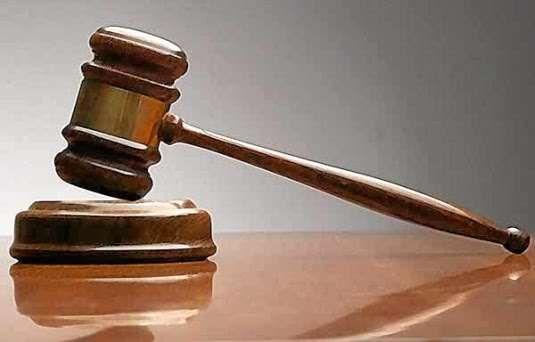News
Alleged ₦81.2bn Tree Planting Scandal: House Committee Exonerates NAGGW

The House of Representatives Adhoc Committee set up to investigate the utilisation of Ecological Fund released to the National Agency for the Great Green Wall (NAGGW), has absolved the Agency’s management of allegations of fraud allegations leveled against it.
The Honorable Ismaila Dabo-led Adhoc committee was set up in July, to investigate allegations of mismanagement of funds released to the agency from the Ecological Fund.
This followed a motion titled: “The Need to Investigate the Utilization of Ecological Funds Released to the Great Green Wall by the International Organizations from 2015 to Date; and All Federal Allocations to the National Agency for the Great Green Wall as well as all Contract Awarded to Various Contractors for the Project from 2019 to Date.” which was sponsored by Honourable Ali Lawan Shettima.
The House panel, in a report obtained by Vanguard, on Sunday, revealed that it reached the conclusion after considering oral evidence and reviewing documents made available to it by those who testified before the 15 member committee.
READ ALSO: I’m Tired Of Wayward Life – Blessing CEO Attends Shiloh, Pray To Find Husband [VIDEO]
At the inaugural sitting of the Adhoc Committee, the management team of the agency was invited to shed light on allegations that it spent ₦81.2 billion on the planting of 21 million trees across 11 frontline states.
The States listed were: Kebbi, Sokoto, Zamfara, Katsina, Kano, Jigawa, Bauchi, Gombe, Adamawa, Yobe and Borno.
The House Committee equally queried the agency over discrepancies in some of its expenditures.
Director General/CEO of National Agency for the Great Green Wall (NAGGW), Dr. Yusuf Maina Bukar, in his presentation before the Committee in September, denied the allegation while making clarifications on budgetary allocations to the agency.
He informed the committee that he assumed office in April 2022, and that berifiable records show that the sum of ₦53,425,423,874.34 was the amount released to the Agency from inception to July 2023, as against the sum of N81.2 bn which the Agency was alleged to have spent.
READ ALSO: 38-year-old Man Arrested Over Alleged Attempt To Murder Wife
Bukar insisted the Agency has not acted outside its mandate in the implementation of its mandate.
According to him, not all of the ₦53,425,423,874.34 received were directly spent for tree planting activities as some uninformed persons would want Nigerians to believe.
He said, “The NAGGW cost of planting, from inception in 2015 to July 2023 is ₦5,145,735,470.15
“That the approximate sum of ₦7.2 billion balance in the Agency’s account are liabilities already committed to ongoing contracts that have already been awarded.
“All unutilized funds from capital appropriation are refunded to Federal Government TSA account at the end of the financial year where applicable.”
READ ALSO: ‘You’re Killing Us’ – Nigerian Singer Tells Clubs Selling ‘Fake’ Drinks
The Honourable Dabo fifteen-man Committee in its report also faulted the claim that the agency received the sum of ₦81.2 bn noting that, “Evidence from the Hearing indicates that the NAGGW received a total sum of ₦53,425,423,874.34 (Fifty-three Billion, Four Hundred and Twenty-five Million, Four Hundred and Twenty-three Thousand, Eight Hundred- and Seventy-four-naira, Thirty-four Kobo) only from inception in 2015 to July, 2023.”
In the course of its investigations, the Committee also discovered that the Agency didn’t receive budgetary allocation for 2015; and that ecological funding was not released to the agency until 2019.
The House panel also discovered that, “the percentage of ecological funding going to the Agency was reduced from 15% provided for by the Act to just 5% with effect from January 2020 to date.”
The report acknowledged the paucity and untimely release of funds, inability to access foreign assistance and absence of a Governing Board as some of the factors hindering the performance of the agency.
The lawmakers equally expressed displeasure over the unilateral reduction in the statutory allocation to the agency by fiat, and urged government, as a matter of urgency revert the Ecological Fund releases to the agency back to 15 percent as provided for by the NAGGW Act.
The report further read in part, “That the total sum of ₦20,168,363,662.18 (Twenty Billion, One Hundred and Sixty- Eight Million, Three Hundred and Sixty-Three Thousand, Six Hundred- And Sixty-Two-Naira, Eighteen Kobo) only being the shortfall of the reduction from Ecological Fund for January, 2020 to date, be immediately released to the Agency to fund its activities;”
Other recommendations contained in the report read : “Similarly, the Ecological fund office should calculate remit to the NAGGW the total sums due to the agency from the Ecological Fund from 2015 to 2018;
“Urge the National Agency for the Great Green Wall to as a matter of urgency include the frontline states of Adamawa, Bauchi and Gombe States in the fourth phase of the a forestation projects which is to commence soon.
“There is urgent need for the agency to undertake recruitment of staff, especially for its offices at the front line states;
“Need for a greater collaboration and synergy between the NAGGW and the Federal Ministry of Environment;”
“Urge the Federal Government to constitute a Governing Board for the National Agency for the Great Green Wall;
“Need for extensive enlightenment of the general public on the sustainable use of the forest for preservation.”
Aside from submissions by the Federal Ministry of Environment, the Central Bank of Nigeria, Office of the Accountant General of the Federation and the Ecological Project Office, the Committee also undertook on-the-spot assessment visit to projects sites in some of the frontline states, namely; Kano, Jigawa and Sokoto State.
News
N200b Agric Credit Dispute: Appeal Court Slams NAIC, Upholds First Bank Victory

The Court of Appeal, Abuja, has dismissed the appeal filed by the Nigerian Agricultural Insurance Corporation (NAIC) against First Bank of Nigeria in the long-running dispute over the disbursement of the Federal Government’s N200 billion Commercial Agriculture Credit Scheme.
The decision was one of seven precedent-setting judgments delivered in six hours on Friday by Justice Okon Abang, underscoring his reputation as a hardworking, firm, and uncompromisingly principled jurist whose rulings continue to shape Nigeria’s legal landscape across criminal, human rights, banking, and civil litigation.
In 2013, the NAIC dragged First Bank before the Federal High Court via originating summons, alleging that the bank failed to deduct the mandatory 2.5 per cent premium under the agriculture credit scheme. First Bank promptly filed a counter-affidavit and written address, with both sides joining issues and exchanging further processes over the years.
But when the case was ripe for hearing, NAIC sought to suddenly withdraw its suit—claiming an unnamed Bankers’ Committee representative had approached it for an out-of-court settlement.
READ ALSO:Court Dismisses SPDC’s Objections To Compensation Over Hydrocarbon Pollution In A’Ibom
First Bank objected, insisting that once pleadings had been exchanged, withdrawal without consent should lead to dismissal, not a mere striking out. To strike out, the bank argued, would allow NAIC a second bite at the cherry—an abuse of process.
The Federal High Court agreed and dismissed the suit, prompting NAIC to head to the Court of Appeal.
Delivering the unanimous judgment of the Court of Appeal, Justice Abang held that NAIC’s appeal was “grossly misconceived” and that, having seen the bank’s defence, NAIC attempted to retreat and re-strategise, “only being smart, believing that it could cunningly manipulate judicial proceedings to save a suit that appears weak and manifestly unsupported.”
He stressed that, once a defendant’s counter-affidavit has been served, any withdrawal by the claimant must naturally lead to dismissal, not striking out, to avoid overreaching the respondent.
READ ALSO:N6trn: Court Orders Tinubu To Publish NDDC Audit Report, Name Indicted Officials
Justice Abang agreed with the trial court that, “Since issues have been joined and the matter has previously been adjourned on several occasions, the proper order to make on the application of the plaintiff is to dismiss the suit.”
The Court of Appeal also questioned NAIC’s reliance on an alleged intervention by the Bankers’ Committee—a non-party that had earlier resisted being joined in the matter.
The appellate court concluded that NAIC, having sighted the bank’s counter-affidavit, simply lost confidence in its case and sought a “soft landing” to refile later.
READ ALSO:
“This cannot be allowed under our watch. The appellant cannot command the impossible,” Justice Abang held, agreeing with the decision of the Federal High Court and dismissing NAIC’s appeal in its entirety, affirming the lower court’s ruling and awarding N1 million costs in favour of First Bank.
The judgment revisits the implementation of the N200 billion Commercial Agriculture Credit Scheme (CACS) launched in 2009 and funded through a DMO-issued bond. The scheme was a flagship intervention of the CBN to boost agricultural productivity through low-interest financing capped at nine per cent.
(GUARDIAN)
News
Nigeria Records One Of Africa’s Widest Gaps In Policy Reputation Index

Nigeria has been identified as one of the African nations suffering the largest disconnect between policy delivery and citizen trust, a finding described as the “defining governance crisis” across the continent, according to the inaugural RPI African Policy Index 2025 released by Reputation Poll International (RPI).
The comprehensive Index, which evaluates governance and policy performance across all 54 African countries, places Nigeria in the middle tier of “Strugglers” with an overall score of 52.3. This category reflects nations that achieve partial policy results but fail to earn public confidence.
Drawing from hard data on policy implementation and perception surveys involving over 25,000 Africans, the report shows that Nigeria records one of the continent’s widest Trust Gaps, sometimes exceeding 25 points between objective performance and citizen confidence.
The report flags Nigeria alongside South Africa, Angola, Egypt, and Zimbabwe as countries with the most severe mismatches.
READ ALSO:Why I Returned To Nigeria On Ivorian Jet — Jonathan
In Nigeria, anti-corruption laws and other initiatives score reasonably well on paper but fail to inspire public trust due to perceived elite impunity and inconsistent enforcement.
Similar patterns exist across these nations, where oil wealth, infrastructure spending, and progressive legislation do not convince ordinary citizens that governments genuinely serve their interests. This trust deficit is highlighted as Africa’s core governance challenge.
The Index emphasises that without deliberate measures to close the gap—through transparent data, citizen audits, and visible accountability—policy ambitions alone cannot produce stable or legitimate outcomes.
By contrast, a small group of nations scoring above 70 demonstrate that world-class governance is achievable when delivery is matched by citizen belief.
READ ALSO:Nigerian Army Promotes 28 Brigadier Generals, 77 Colonels
Mauritius leads with 78.9, followed by Seychelles at 76.4, Cabo Verde at 74.8, and Botswana at 73.2. These countries excel because strong economic management, high vaccination rates, transparent institutions, and consistent progress in education and digital reforms are reinforced by equally high public trust.
Botswana and Mauritius succeed not because they are wealthy, but because they systematically include citizens in monitoring and feedback, narrowing the trust deficit to near zero.
Over half of Africa, however, remains far from this standard. The Strugglers tier (50–69.9) encompasses 30 countries, while 18 “Systemic Challengers” score below 50, from Sierra Leone at 49.2 to South Sudan at 28.4.
READ ALSO:Tinubu Constitutes Membership For US–Nigeria Security Working Group
In these countries, structural breakdowns, chronic insecurity, and collapsed legitimacy produce average Trust Gaps of 35 points, undermining even modest policy efforts amid daily experiences of violence and exclusion.
Central Africa records the lowest regional average at 41.2, while Southern Africa dominates the top tier. West, East, and North Africa deliver mixed results.
For Nigerian leadership, the Index sends a clear message: policy formulation alone is no longer sufficient. As the country grapples with debt, youth unemployment, and climate pressures, bridging the Trust Gap through better communication, transparency, and inclusive monitoring has become essential to achieve sustained development and restore public confidence.
The RPI African Policy Index 2025 stands as both a warning and a roadmap: unless the trust deficit is addressed, Africa’s governance crisis will only deepen.
(GUARDIAN)
News
‘My Father Discovered Banana Island’ – Ex-BBNaija Star Claims

Former Big Brother Naija reality star, Kiddwaya has claimed that his dad, Terry Waya, discovered the famous Banana Island in Lagos.
He made the claim in a recent of the Off The Record podcast.
The host asked: “I heard that your dad discovered Banana Island. Is that correct?”
READ ALSO:Moment Adekunle Gold Light Up BBNaija S10 Finale With ‘Party No Dey Stop’
Kiddwaya replied: “Yeah, I didn’t even know until I heard it during one of my trips.”
Kiddwaya’s dad, Terry Waya is a self-acclaimed billionaire with investments in the real estate, agriculture and hospitality industry.
His public profile was further boosted during and after his son Kiddwaya’s appearance on the Big Brother Naija reality show in 2020.
Watch video here.

 Metro4 days ago
Metro4 days agoJUST IN: Again, Terrorists Storm Kwara Community, Kidnap Pregnant Woman, 10 Children, Others

 News4 days ago
News4 days agoHow To Access Your Pension Before Retirement

 News3 days ago
News3 days agoBREAKING: Tinubu Declares Nationwide Security Emergency, Orders Armed Forces To Recruit More Personnel

 Headline3 days ago
Headline3 days agoCoup In Guinea-Bissau? Soldiers Deployed Near Presidential Palace After Gunfire

 News2 days ago
News2 days agoGuinea-Bissau Coup: FG Gives Update On Ex-President Jonathan

 News3 days ago
News3 days agoTinubu Appoints Non-Career Ambassadors For US, UK, France

 Metro2 days ago
Metro2 days agoJUST IN: One Dead As Ngige Escapes Assassination

 Politics4 days ago
Politics4 days agoCrack In Edo APC As Group Accuses Party Chieftain Of Acting Opposition’s Script

 Metro3 days ago
Metro3 days agoBREAKING: Bandits Abduct Teenage Boy, Six Girls From FCT Community

 News2 days ago
News2 days agoOkpebholo Fires EDOGIS Managing Director


























